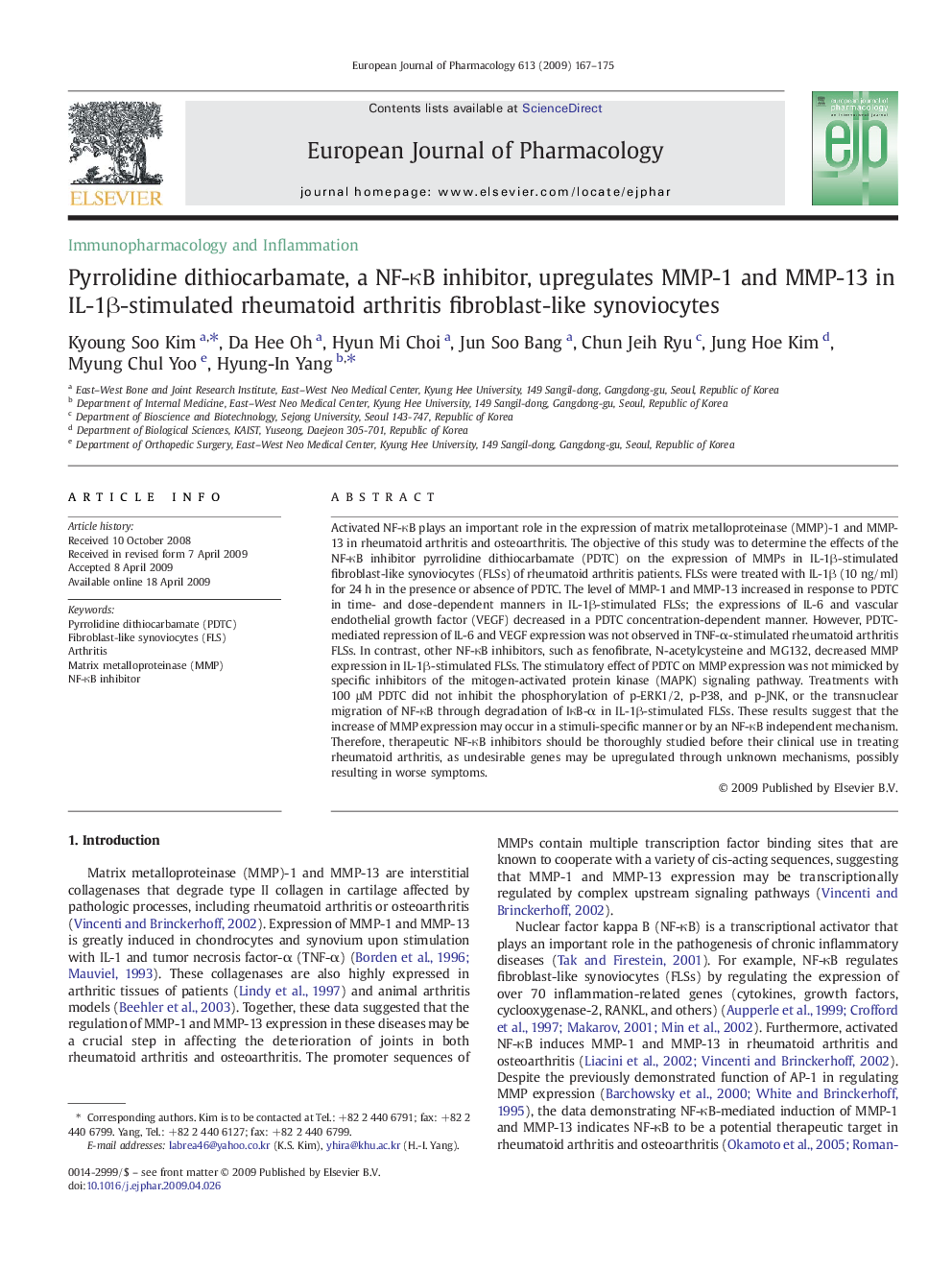| Article ID | Journal | Published Year | Pages | File Type |
|---|---|---|---|---|
| 2534298 | European Journal of Pharmacology | 2009 | 9 Pages |
Activated NF-κB plays an important role in the expression of matrix metalloproteinase (MMP)-1 and MMP-13 in rheumatoid arthritis and osteoarthritis. The objective of this study was to determine the effects of the NF-κB inhibitor pyrrolidine dithiocarbamate (PDTC) on the expression of MMPs in IL-1β-stimulated fibroblast-like synoviocytes (FLSs) of rheumatoid arthritis patients. FLSs were treated with IL-1β (10 ng/ml) for 24 h in the presence or absence of PDTC. The level of MMP-1 and MMP-13 increased in response to PDTC in time- and dose-dependent manners in IL-1β-stimulated FLSs; the expressions of IL-6 and vascular endothelial growth factor (VEGF) decreased in a PDTC concentration-dependent manner. However, PDTC-mediated repression of IL-6 and VEGF expression was not observed in TNF-α-stimulated rheumatoid arthritis FLSs. In contrast, other NF-κB inhibitors, such as fenofibrate, N-acetylcysteine and MG132, decreased MMP expression in IL-1β-stimulated FLSs. The stimulatory effect of PDTC on MMP expression was not mimicked by specific inhibitors of the mitogen-activated protein kinase (MAPK) signaling pathway. Treatments with 100 μM PDTC did not inhibit the phosphorylation of p-ERK1/2, p-P38, and p-JNK, or the transnuclear migration of NF-κB through degradation of IκB-α in IL-1β-stimulated FLSs. These results suggest that the increase of MMP expression may occur in a stimuli-specific manner or by an NF-κB independent mechanism. Therefore, therapeutic NF-κB inhibitors should be thoroughly studied before their clinical use in treating rheumatoid arthritis, as undesirable genes may be upregulated through unknown mechanisms, possibly resulting in worse symptoms.
